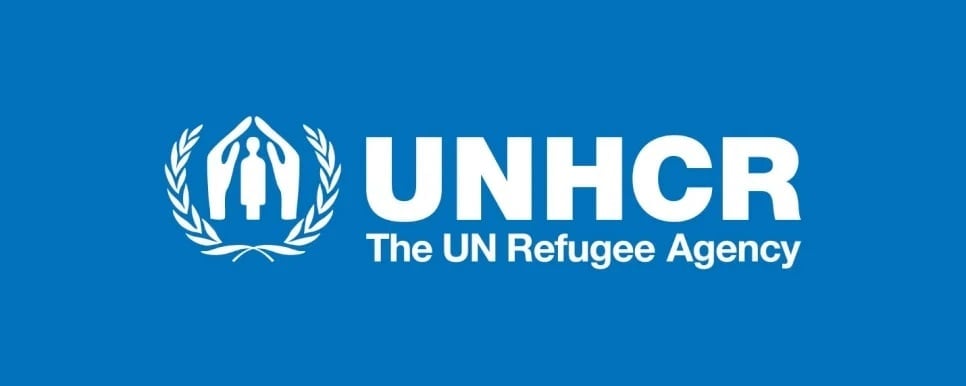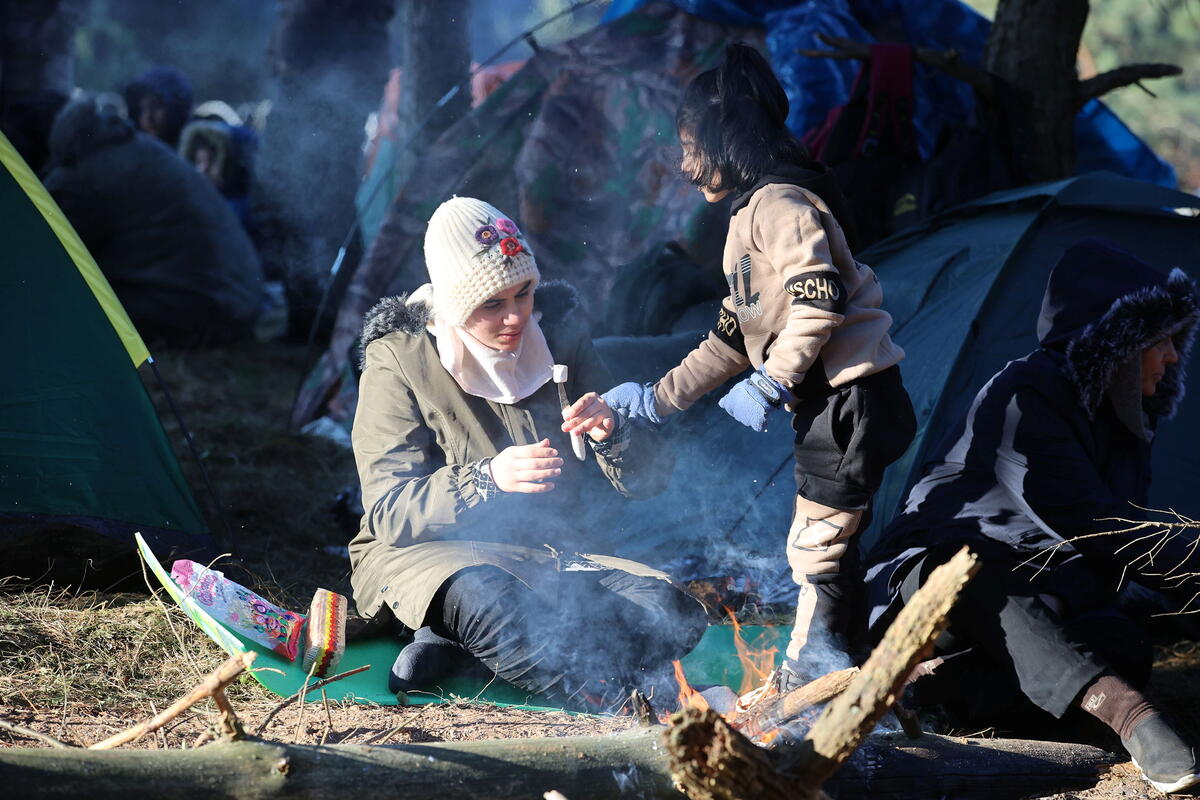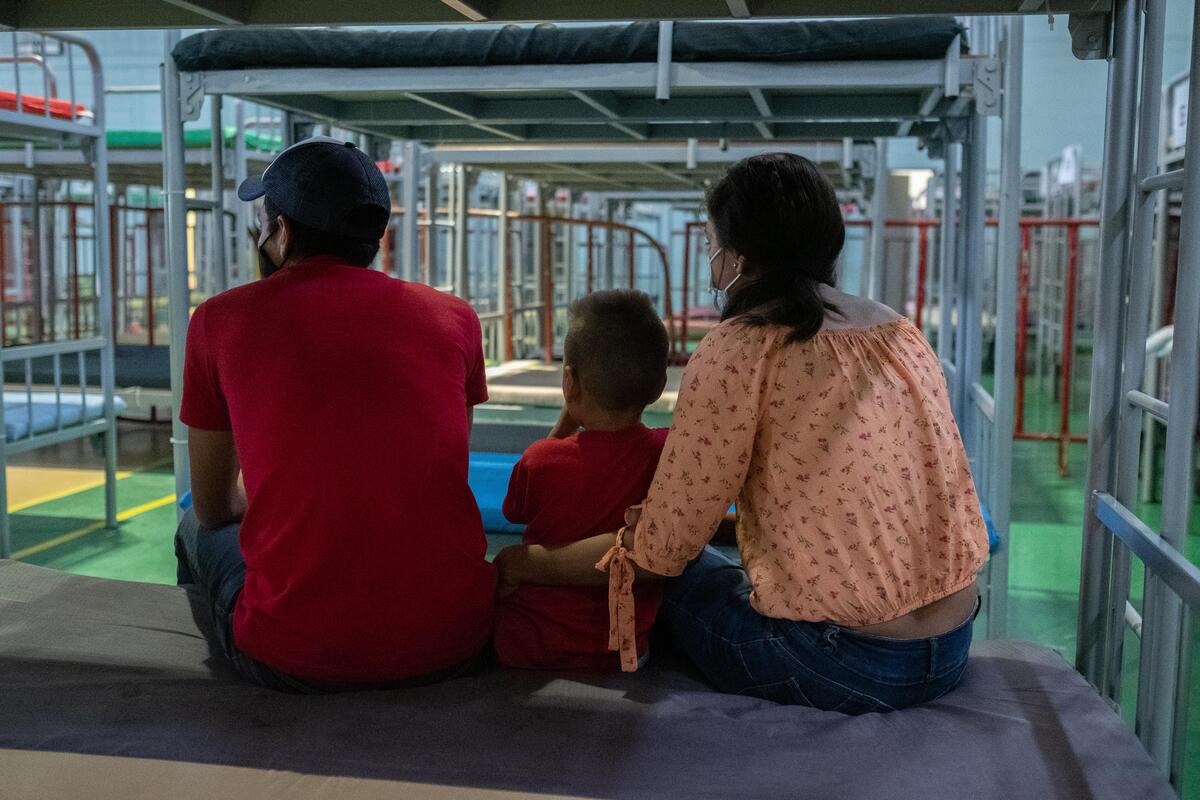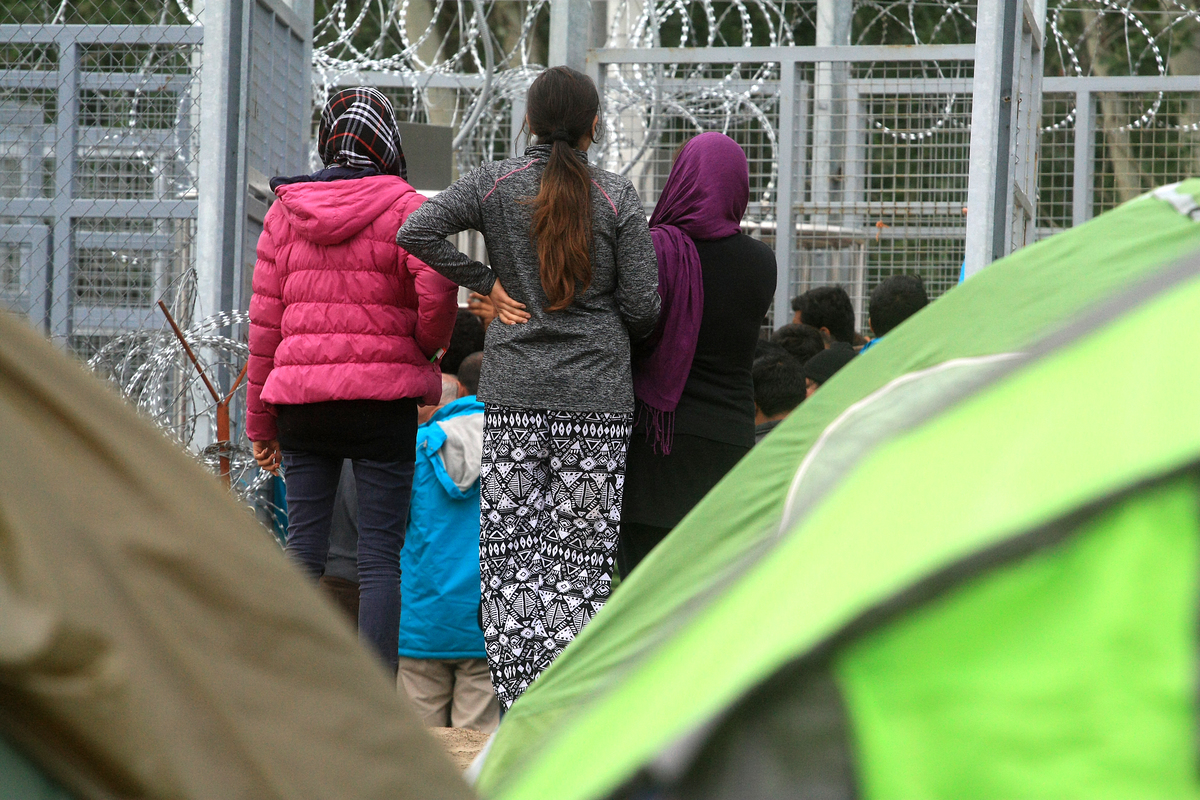Afghanistan/Tajikistan: UNHCR concern for 10,000 on border
Afghanistan/Tajikistan: UNHCR concern for 10,000 on border
UNHCR remains very concerned about some 10,000 Afghans living on the banks and islands of the Pyandj River, on the border between Afghanistan and Tajikistan. Reports from UNHCR staff who have visited the area indicate that the number of Afghans in the river zone is increasing as more families flee fighting.
The Afghans are in a desperate situation. Sporadic shelling continues at one of the river sites. Aid workers can remain in the risky border zone for only a few hours a day. UNHCR and other relief workers, who have visited the site in recent days, found that in addition to the grave security risks due to shelling, the Afghans suffer from a lack of food, an absence of proper shelter and potable water. Diarrhoea, dysentery and other illnesses have been reported. Some refugees have been wounded in the shelling. Some of the people have been stuck in the border zone for up to six weeks now. They had fled the northern Afghan city of Taloqan and the surrounding region, following fighting between the Northern Alliance and Taleban forces some weeks ago
The Tajik government has not yet responded to UNHCR's request to allow the Afghans to formally enter its territory, which is guarded by Russian border forces under an agreement between Dushanbe and Moscow. There are reports that some armed men are among the people stuck on the frontier, and any armed elements among the thousands of women, children and elderly who make up this group would have to be disarmed before being allowed to enter Tajikistan as refugees.
UNHCR has set aside nearly $250,000 to aid the Afghans at the border site. We are preparing to airlift to Dushanbe plastic tarpaulins from stocks in Copenhagen. Household and cooking supplies, like coal, jerry cans, as well as medical and hygienic kits will be bought in Dushanbe. Some governments have offered funds to support aid to the border group. The United Kingdom has offered $70,000, the Netherlands may provide $40,000, and the US government has also signalled willingness to pitch in. In the event that the Afghans are authorised to enter Tajikistan, they will be moved to a safer location and additional supplies and assistance will be urgently required.
Meanwhile in Pakistan, new Afghan arrivals are being registered. Since September, up to 47,000 Afghans have been brought to New Shamshatoo refugee site and other camps in the North West Frontier Province. The new arrivals are the largest wave of Afghans to enter Pakistan since the 1996 capture of Kabul by Taleban forces. Most of the new refugees are fleeing northern Afghanistan by foot or vehicle to escape the fighting between the Northern Alliance and Taleban forces.







